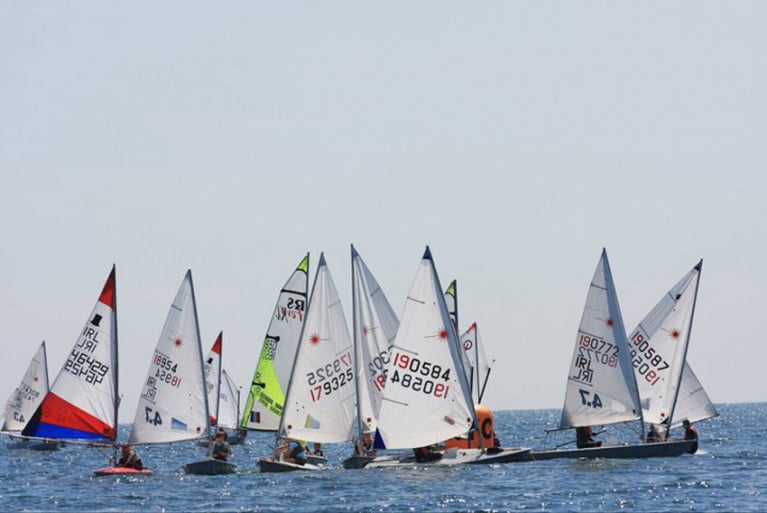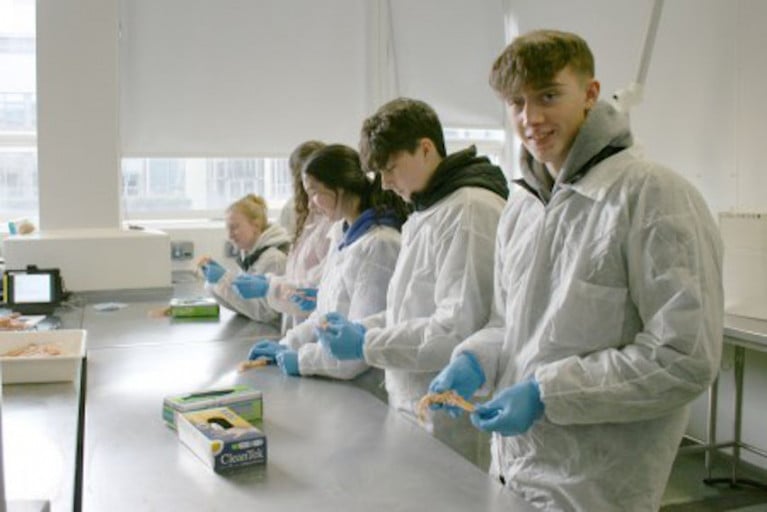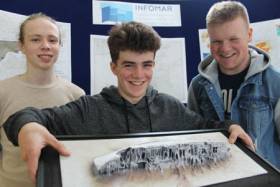Displaying items by tag: Transition Year
The Transition Year Sailing Member Programme has run for a number of years between the Dun Laoghaire Waterfront clubs, and has proven important for keeping teenagers involved in sailing.
Heading into the 2020/21 academic year, another programme of youth sailing events has been established for the latest cohort of TY students — a challenging feat while coronavirus restrictions are in place, and as such it remains subject to change.
This year’s programme can only run if supported by volunteer parents. The National Yacht Club will be looking for assistance throughout the year, and parents will also be asked to volunteer during individual course registration sign-ups.
A summary of what’s been planned to offer during the school year is on the NYC website — families are asked to study this carefully before completing the expression of interest form, which should be submitted by this Friday 10 July.
Twenty-five Transition Year (TY) students from Mayo, Galway, Roscommon, Clare, Kildare, Carlingford, Dublin and Sligo were welcomed to the Marine Institute’s sixth annual TY week programme following the recent midterm break.
From 24-28 February, students had the opportunity to learn about marine science, technology, engineering and communication through a range of activities at the Marine Institute's headquarters in Oranmore, Co Galway.
Students participated in interactive activities related to marine fisheries and chemical science, seabed mapping, food safety, communications, research vessel operations, oceanography, climate change, engineering technology, maritime development, information technology with data and coding as well as team-building.
The TY programme enables students to shadow scientists and staff at the Marine Institute and experience what it is like to work in the marine sector.
Marine Institute chief executive Dr Paul Connolly said: “Our TY programme provides an insight into the diverse career opportunities on offer in Ireland’s marine sector, and inspire the next generation of marine professionals and ocean leaders.
“Increasing students’ knowledge and engagement on the importance of our marine resource is key to supporting Ireland’s ocean economy, where highly-skilled professionals are needed in the future.”
HR manager Catherine Quigley-Johnston added: “The demand for our TY programme is growing every year and it is great to see such a strong interest in science, technology and the environment and that many are considering pursuing careers in our marine and maritime sectors at this stage of their education.
“Alongside the interest and enthusiasm from our students, the passion and knowledge shared by our teams involved in delivering the content helps make the TY programme a success."
Encouraging a new generation to pursue marine and maritime careers is part of the Marine Institute’s Strategic Plan 2018-2022: Building Ocean Knowledge, Delivering Ocean Services.
Ireland's national marine plan, Harnessing Our Ocean Wealth, also highlights the need for education and training programmes to maintain and develop skilled professionals in the marine sector.
All places for this year’s TY programme have been allocated, but next year’s Transition Year students, from any school in Ireland, are welcome to apply for the week-long, full-time programme at the Marine Institute for 2021 when the process begins in September.
#MarineScience - A group of transition year students from five counties around Ireland, including Galway, Clare, Mayo, Roscommon and Meath, recently completed a week of marine science and technology training at the Marine Institute.
Now in its fourth year, the Marine Institute transition year training programme is designed to provide students the opportunity to experience what it is like to work in the marine and technology sector.
"Shadowing scientists and staff, the students took part in interactive experiments involving fisheries and ecosystem science, marine environment and food safety, IT applications development, oceanographic research, advanced mapping and research vessel operations as well as, maritime development and communications. The students also took part in a number of fun team building and communications related activities to develop their interpersonal skills. Completing the week with team presentations highlighting their learning from the programme," explained Catherine Quigley-Johnston, HR manager, Marine Institute.
Ireland's marine sector is a vibrant part of our national economy and the need for education in the marine sector at all levels is highlighted by Ireland's Integrated Marine Plan Harnessing Our Ocean Wealth. A recent publication issued by European Commission also noted that in a well-functioning economy, education and industry are two sides of the same coin, where both need to vigilantly highlight the trends in the future job market.
Dr Peter Heffernan, CEO of the Marine Institute said "it is important for the Institute to promote the opportunities in science, technology and innovation, so as to ensure that students are considering on developing the right skills that they need in the future. This is particularly true for the marine economy, where there are brand-new undertakings for marine technology, biotech to traditional ones in the maritime industry including shipping, sectors which are forever evolving".
Combining classroom and workplace experience is a unique opportunity for the transition year students, bridging the gap between sciences and the blue economy. Training such as the Marine Institute's TY Programme, has many advantages as it improves the student's skills and general knowledge about science and the marine environment, sewing the seeds for future careers.
"After a week with our scientists, we can see the students gaining confidence and the motivation to engage with others, highlighting the importance of protecting and sustainably developing our marine resource as well as talking to others about topical world issues such as dealing with ocean plastic pollution at a local and national level," Ms Quigley-Johnston added.


























































